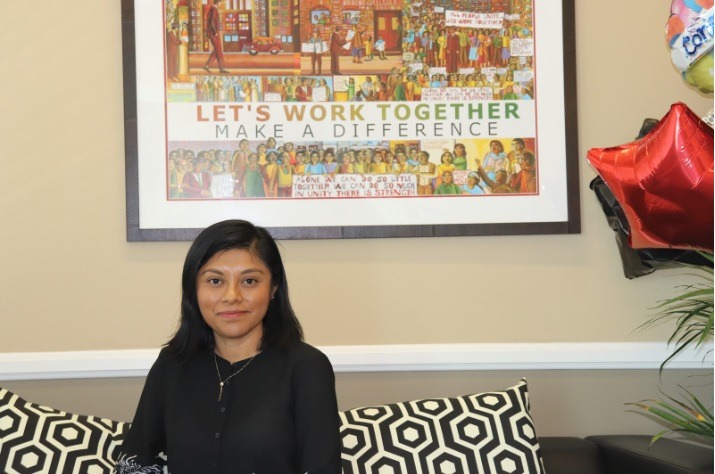Like many undocumented immigrants across the country, Lizbeth Mateo moved to the United States with her family, worked through numerous struggles to acclimate, learned English as a teenager and worked her way through college.
Unlike many, she earned her law degree and this year, was appointed to a state board.
Mateo met with UT Community News to tell her tale.
Lizbeth Mateo’s petite stature belies her internal strength. Mateo, the oldest of three children, was born and raised in Oaxaca, Mexico, one of the most poorest states in the country where few women study past sixth grade and even fewer attend college.
But Mateo’s parents pushed her to believe she could do anything in life. She believed it. She dreamed of being a doctor or lawyer.
When she was 12, she participated in a writing contest. The judges lavished her with praise on her prose. Full of pride, she rushed home to tell her family.
She shared the news and declared that she wanted to go to college someday.
As she saw tears swell in her dad’s eyes, Mateo was bewildered. “Why is he crying?” she recalled thinking.
As she stood there comforting him, it dawned on her: “He’s crying because he can’t afford college.”
She decided to keep quiet about her dreams for a while. She needed to think. She had to figure something out.
But not long after, her dad started talking about the idea of joining some of his relatives in California.
“I’m going to go work and send money so you can go to college,” he told her.
The family didn’t want him to leave. We should stay together, Mateo thought.
“Why don’t we all go for a couple of years and come back so I can continue studying?” she suggested, fully intending to return.
At 14, she was in high school and spoke no more than a few words of English. Her parents worked from 5 a.m. to 6 p.m. most days.
Many times, she wondered if it had been selfish. They were exhausted. She was overwhelmed. She felt like giving up so many times.
In one such moment, she found herself reduced to tears as her doubts took over.
“Why am I doing this? I’m not even going to be able to use my degree. It’s going to be a worthless piece of paper,” she recalled thinking.
Her mom brought her a plate of food, as she often did, and offered this simple advice: “Eat. Don’t stress.”
In the back of her mind, she knew succeeding would allow her to help her parents someday.
“It was really important for me to keep going so that someday I can provide my parents with a peaceful retirement so that they don’t have to work for their rest of their life long hours, six to seven days a week. I want them to enjoy everything my grandparents didn’t enjoy because of always working,” Mateo said.
It took six years, but Mateo graduated college and even went on to receive a law degree from Santa Clara University in 2016.
Despite being undocumented, she now has her own law practice in Wilmington.
She said her goal is to not only provide quality legal services at a reasonable cost for the community, but to use her office as a safe space, a place where she can empower people to understand their rights.
Mateo said she is so thankful for all that she has been able to accomplish. Being appointed to the California Student Opportunity and Access Program Project Grant Advisory Committee — which looks for ways to help students from underserved communities go to college — was the cherry on top: “It was a beautiful surprise.”
Community News reporters are enrolled in JOUR 3910 – University Times. They produce stories about under-covered neighborhoods and small cities on the Eastside and South Los Angeles. Please email feedback, corrections and story tips to UTCommunityNews@gmail.com.







